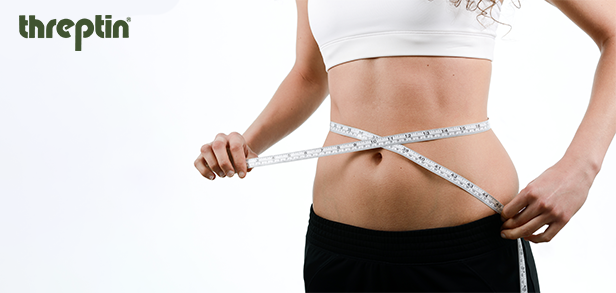
Eating protein-rich food offers several advantages, such as muscle growth and weight loss. Although regular protein consumption is advantageous, eating a well-balanced diet is also important for remaining healthy.
Eating high protein foods diet can aid in weight loss by preventing overeating. When you pair protein food with exercise, it can aid in developing lean muscle and weight loss. This article will talk about the significant role of high protein food in losing weight.
What do you know about a high protein diet?
High-protein diets promote consuming higher protein and fewer carbs and fat to lose weight, increase energy, and enhance physical performance. Protein is a nutrient that is essential for maintaining a healthy well-being. It takes care of various vital processes in the body systems, like hormone production, enzyme production, and cell maintenance and repair
A high-protein diet can assist obese and overweight individuals in reducing fat while maintaining muscle mass. Protein-rich diets reduce appetite, improve satiety, raise metabolic rate, and retain muscle mass.
Things to Remember While Consuming a High Protein Diet
A high-protein diet requires protein to account for over 20% of daily calories intake. It usually entails consuming fewer calories from carbs or fats to maintain a healthy calorie total. There are no items that are explicitly restricted on a high protein diet. However, consuming higher lean proteins and less processed carbs, sweets, and fats is beneficial for a healthy body.
You do not have to follow a time or schedule for consuming high protein foods. Additionally, there are a lot of factors that determine the number of proteins you should consume regularly. It includes your age, body size, gender, and degree of exercise. A high-protein diet’s normal beginning ratio is 30% protein, 30% fat, and 40% carbs. The following are some high protein meals that you may incorporate into your diet to maintain a healthy lifestyle:
- Lean protein comprises seafood, soy, low-fat dairy, lean meat, nuts, eggs, and seeds
- Leafy greens, cruciferous vegetables, mushrooms, and peppers.
- High protein vegan foods
- Low glycemic fruits include strawberries, raspberries, and blueberries.
- Whole grains.
- Protein diskettes
Does High Protein Food Intake Support Weight Loss?
Research states that high protein food intake makes you shed weight and prevents fat accumulation while increasing muscle strength. A diet rich in lean protein, fruits, vegetables, and whole grains is hailed as a great method to lose weight. Although high protein intake has several advantages, there are four major aspects where you can see the benefits of high protein for weight loss:
Satiety
Hunger is among the most significant impediments to weight reduction. People are significantly less able to adhere to a nutritional or dietary plan if they are constantly hungry. Proteins are the most satisfying food element of all macronutrients. Higher protein consumption is associated with increased satiety and decreased appetite. There appear to be modest changes in the amount of satiety that proteins deliver based on the protein source.
Thermic effect of food
The Thermic Effect of Food (TEF) is the rate where your body will burn calories. Protein meals’ thermic actions essentially break down the food, digest it, and convert it to energy. Although there is a minor effect of weight loss with the thermic effect, it does support weight loss to a certain extent.
Lean mass
Protein aids in the preservation of lean muscle mass throughout times of calorie reduction. It is a necessary macronutrient for muscular development. Our body breaks down the protein food into amino acids that aids in building muscle.
Furthermore, the best protein-rich foods aid in the retention of curbing hunger pains, lean mass, and keeping you healthy enough to maintain better health.
Storage as body fat
With weight reduction, more energy is frequently ingested than produced. As a result, reducing the amount of surplus energy contained as fat is critical. The three macronutrients, namely, proteins, fats, and carbs, are processed in various ways by the body. Protein must go through a far different metabolic pathway than carbs or protein stored as fat.
Every Day Requirement of Proteins Consumption to lose weight
If you ever plan for weight loss, you must strive for 1.6 to 2.2 grams of protein/kg of body weight every day. Sportspersons and hard fitness enthusiasts should ingest 2.2-3.4 g of protein/ kg to lose weight. People who have a BMI (Body Mass Index) greater than 30 or a fat mass percentage greater than 25-30% should calculate their protein needs on their desired weight.
Final Thoughts
Since several diets can effectively reduce weight, one of the most crucial variables to consider when choosing a diet is the protein level. This protein guide states that protein induces satiety, aids in the maintenance of lean body mass. Also, it somewhat improves the meal’s thermic effects and diminishes the body’s efficiency in storing excess calories as body fat. With these four effective factors, high protein diet foods support losing weight effectively.



